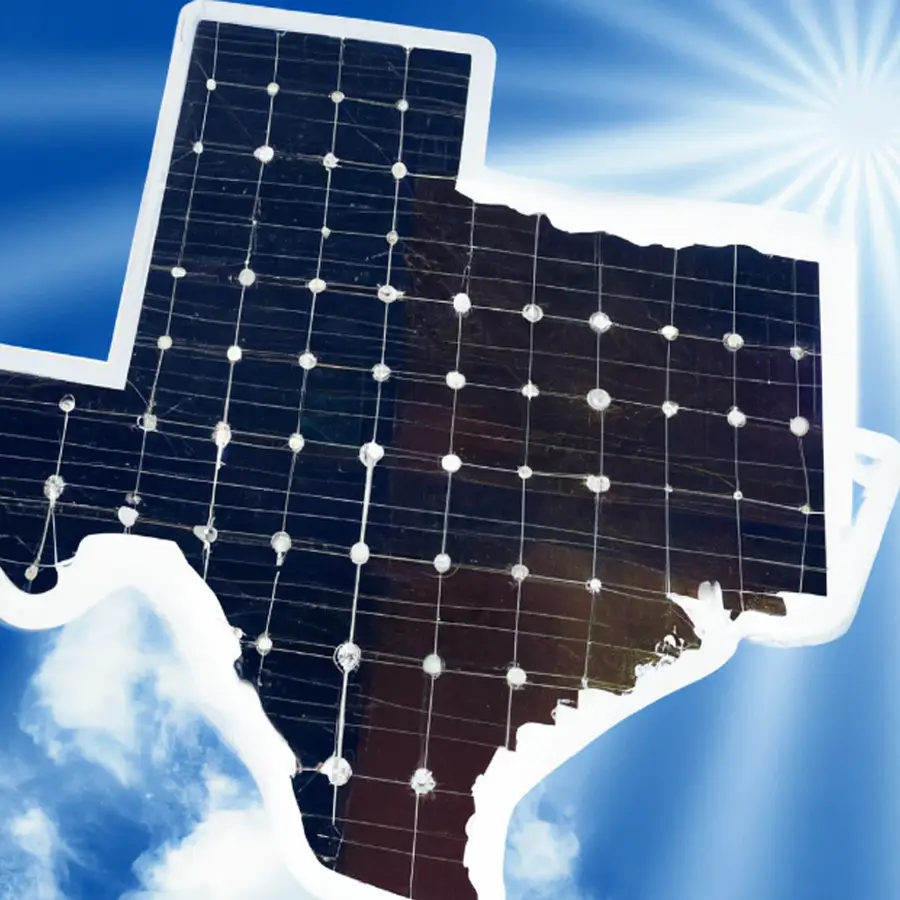
In recent years, Texas has been plagued by power outages and energy grid failures that have left millions of residents without electricity during critical times. And now, history is repeating itself. A series of tornados combined with a heat wave is again leaving people in Texas and the Southern US without power.
The severe winter storm in February 2021 and subsequent heatwaves have exposed the vulnerability of Texas’ power infrastructure. However, amidst these challenges, renewable energy sources, particularly solar power, have emerged as a promising solution to enhance the reliability and resiliency of the Lone Star State’s power grid.
The Texas Power Crisis:
Texas is known for its abundant energy resources, including natural gas, coal, and wind power. However, the overreliance on a deregulated energy market, coupled with an aging power grid and inadequate planning, has led to significant vulnerabilities in the state’s electricity system. The devastating winter storm in 2021 resulted in massive blackouts, leaving millions of Texans without power and causing widespread disruptions.
The Role of Solar Energy:
Solar energy has proven to be a reliable and sustainable alternative to conventional energy sources. By harnessing the power of the sun, solar panels can generate electricity without emitting harmful greenhouse gases, reducing the carbon footprint and mitigating climate change. Implementing solar energy on a large scale in Texas can help address the power failures and provide a more stable energy supply.
Benefits of Solar Energy in Texas:
- Diverse Energy Portfolio: Integrating solar power into Texas’ energy mix can diversify the state’s energy portfolio, reducing its dependence on a single source. This diversification promotes grid stability and resilience by minimizing the risks associated with relying heavily on fossil fuels.
- Distributed Generation: Solar energy offers the advantage of distributed generation, where power is generated closer to the point of consumption. This reduces the strain on transmission lines and lowers the likelihood of widespread blackouts during extreme weather events.
- Resilience to Extreme Weather: Unlike traditional power plants that can be vulnerable to extreme weather conditions, solar panels are designed to withstand hurricanes, heatwaves, and other natural disasters. By incorporating solar energy into the grid, Texas can enhance its resilience against future extreme weather events.
- Job Creation and Economic Benefits: The adoption of solar energy can stimulate the local economy by creating jobs in manufacturing, installation, and maintenance of solar panels. Additionally, it can attract investments from renewable energy companies, leading to economic growth and long-term sustainability.
- Environmental Impact: Transitioning to solar power reduces reliance on fossil fuels, helping to mitigate air pollution and combat climate change. Solar energy is a clean, renewable resource that emits no greenhouse gases during operation, leading to improved air quality and healthier communities.
Challenges and Solutions:
While solar energy presents a promising solution, there are some challenges to consider. One significant obstacle is the intermittency of solar power due to variations in sunlight availability. However, advancements in energy storage technologies, such as large-scale batteries, can address this issue by storing excess solar energy during peak production for later use during periods of high demand.
Furthermore, the expansion of solar infrastructure requires supportive policies and incentives. By implementing favorable regulations and offering financial incentives for solar installations, Texas can encourage homeowners, businesses, and utility companies to adopt solar energy, driving the state toward a more sustainable and reliable energy future.
Conclusion:
The power failures experienced by Texas have highlighted the urgent need for a resilient and sustainable energy system. Solar energy has emerged as a viable solution that can enhance grid stability, reduce greenhouse gas emissions, and create a more reliable power supply. By embracing solar power and adopting supportive policies, Texas can overcome its power challenges, ensure a cleaner and more secure energy future, and set an example for other states to follow.
When you’re ready to secure your electricity using solar or solar+energy storage, please give us a call at 206-706-1931 or fill out our form below and tell us about your project.



